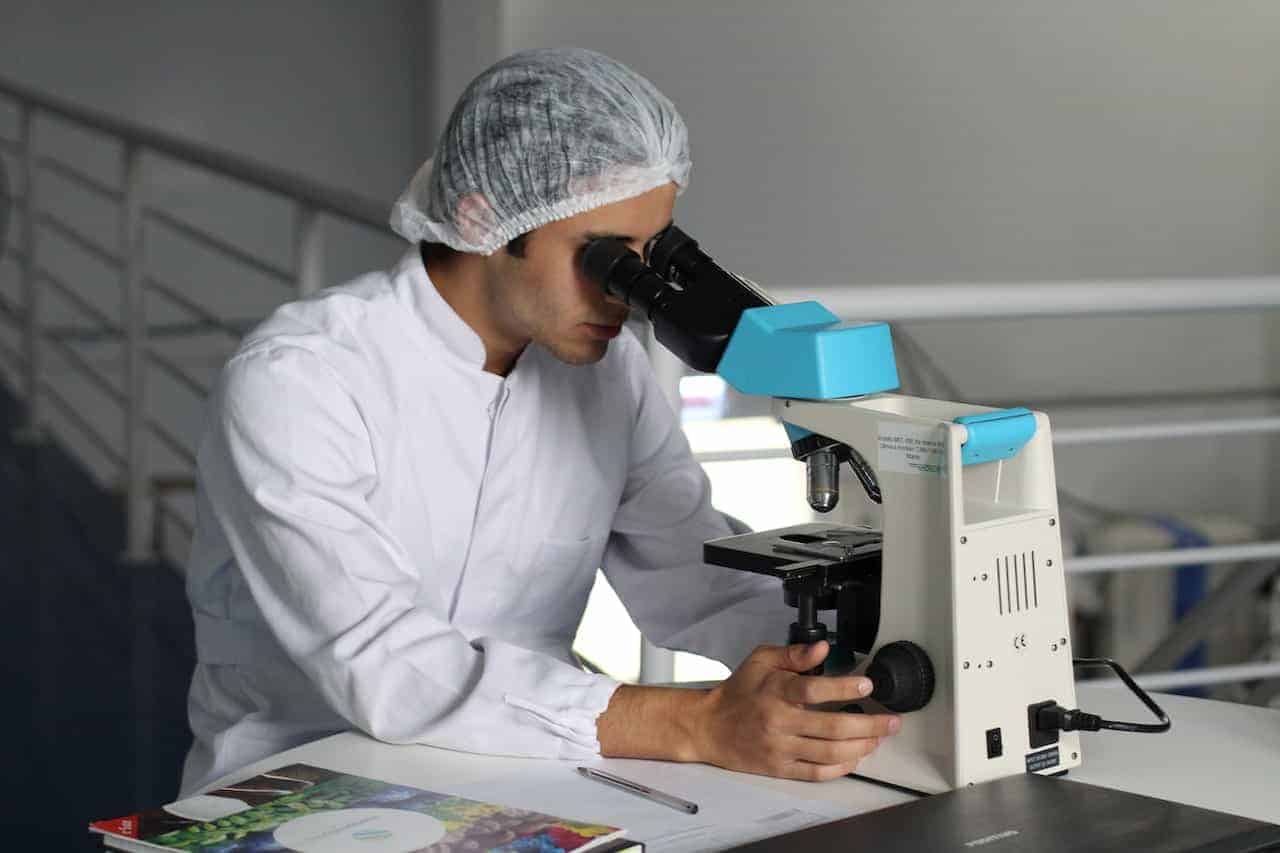A chemical pregnancy is a condition that affects many women. An early miscarriage occurs in the days following conception before an embryo can be detected on ultrasound or other tests. This article will discuss how to prevent chemical pregnancy and what steps should be taken if one has already occurred.
It is essential for those trying to conceive of understanding the risk factors associated with chemical pregnancies. Age, health history, and lifestyle choices can contribute to this pregnancy loss. Additionally, it is essential to recognize potential signs and symptoms of a chemical pregnancy so that appropriate medical attention can be sought if needed.
Ultimately, knowledge about chemical pregnancy prevention strategies is vital in helping individuals take control of their reproductive health journey by reducing the likelihood of experiencing this type of loss. By understanding the risks involved, developing healthy habits, and seeking help from healthcare professionals when needed, individuals may be able to avoid or reduce their chances of having a chemical pregnancy.
Definition Of Chemical Pregnancy:
A chemical pregnancy is a medical term for an early miscarriage. It is often called ‘biochemical pregnancy’ or ‘early pregnancy loss.’ It occurs when the fertilized egg fails to implant in the uterus and begins to break down shortly after conception. While this type of miscarriage may be complex, it is pretty typical: many women experience at least one chemical pregnancy during their lifetime without even being aware they were pregnant.
Despite its name, a chemical pregnancy does not involve any chemicals; instead, it refers to the detection of certain hormones in the woman’s body, which indicate that she was briefly pregnant before miscarrying. The only way to prevent a chemical pregnancy is to understand what causes them and take steps to reduce those risk factors.
Causes Of Chemical Pregnancy
Chemical pregnancy can occur for various reasons, most of which are out of one’s control. However, in some cases, reducing the risk of a chemical pregnancy is possible by adopting specific lifestyle changes and following medical advice. The most common causes include hormonal imbalances or deficiencies, inadequate nutrition and poor health habits, immunological factors, age-related infertility issues, genetic abnormalities, environmental toxins exposure, and certain medications.
Hormonal imbalances can be caused by stress, obesity, or extreme dieting; all of which can harm fertility. Inadequate nutrition may also increase the risk of chemical pregnancy due to vitamin and mineral deficiencies that affect reproductive hormones, egg quality, and cell division. Poor health habits such as smoking cigarettes or drinking alcohol excessively can further impair fertility and increase the chances of developing a chemical pregnancy. Immunological factors may contribute to difficulties with implantation, while age-related infertility issues could cause chromosomal disorders that lead to failed pregnancies.
Genetic abnormalities such as Turner or Down Syndrome can result in unsuccessful conception attempts. At the same time, environmental toxins like pesticides, heavy metals, and radiation can interfere with normal embryonic development processes. Finally, taking certain medications during the early stages of conception may also lead to chemical pregnancies.
Identifying these risk factors is essential for couples who want to avoid chemical pregnancies because doing so allows them to take preventive measures ahead of time.
Identifying Risk Factors
Numerous medical experts have explored the theory that chemical pregnancy results from underlying health conditions over the years. In contrast, no definitive conclusions have been made about several risk factors associated with an increased chance of experiencing this type of early miscarriage. These include advanced maternal age, pre-existing medical conditions such as diabetes or hypertension, and lifestyle choices such as smoking and excessive alcohol consumption.
A woman’s fertility plays a role in her likelihood of having a chemical pregnancy. Women who use certain medications, such as hormone therapy drugs or fertility treatments, may be at higher risk than those without these exposures. Additionally, some studies suggest that women who are underweight or overweight may also be more likely to experience this type of pregnancy loss. It is important to note that while any factor alone can increase the chances of a chemical pregnancy, combinations of these risks can make a woman even more susceptible.
Preconception Care And Counseling:
Taking specific steps before conception is essential to reduce the risk of a chemical pregnancy. Preconception care and counselling can help prepare couples for a healthy pregnancy by addressing potential medical and lifestyle issues.
Healthcare providers should advise women on modifying their diet and exercise routine during preconception to increase fertility. It includes eating foods rich in folic acids, such as leafy green vegetables and whole grains, and taking multivitamins with at least 400 micrograms (mcg) of folic acid daily. Exercise also benefits both partners; regular physical activity helps keep weight in check, boosts energy levels, relieves stress, improves sleep quality, and increases overall fertility.
In addition to dietary changes and exercising regularly, healthcare providers may suggest prospective parents quit smoking or drinking alcohol before attempting to conceive. Smoking has been linked with an increased risk of infertility due to its adverse effects on egg production, sperm motility, ovulation irregularities, hormonal imbalances, and uterine health. Alcohol consumption can lead to fetal abnormalities and decreased fertility rates for both genders; therefore, abstaining from alcohol before conception is recommended. Finally, managing any existing chronic conditions, such as diabetes or hypertension, is critical for reducing the risk of complications during pregnancy.
Maintaining A Healthy Lifestyle:
A chemical pregnancy is a type of miscarriage that occurs very early in the first trimester, often before an individual even realizes they are pregnant. While it can be disheartening for those trying to conceive, one can take steps to reduce the risk of experiencing a chemical pregnancy. One way to do this is by maintaining a healthy lifestyle.
Eating nutritious foods and exercising regularly helps promote both physical and emotional health. Eating plenty of fruits, vegetables, whole grains, lean proteins, and healthy fats provides essential vitamins and minerals for conception and fetal development if successful implantation occurs.
Additionally, regular exercise has been linked with improved fertility outcomes due to its ability to boost endorphin levels which can reduce stress and anxiety associated with trying to conceive. Staying hydrated throughout the day is essential since dehydration can impair reproductive function.
In addition to eating right and being physically active, another critical component of maintaining a healthy lifestyle when preventing a chemical pregnancy is managing stress levels adequately through relaxation techniques such as yoga or meditation. High-stress levels have been shown to impact fertility negatively; therefore, finding ways to relax and keep anxiety at bay during this time is essential.
Getting plenty of restful sleep also reduces tension while providing the energy needed for daily activities like walking or light exercises like stretching or Pilates. These simple yet effective steps will help improve overall well-being when avoiding an unfortunate experience like a chemical pregnancy.
Taking Supplements:
A healthy lifestyle is essential to preventing chemical pregnancy, but taking the right supplements can help further reduce the risk. Vitamins C and D are two essential vitamins that aid in fertility health. Vitamin C helps with ovarian function and hormone regulation, while vitamin D increases cervical mucus production, which makes it easier for sperm to reach its destination.
Additionally, zinc has been found to increase progesterone levels necessary for successfully implanting a fertilized egg. It may also be beneficial to take folic acid as this B vitamin aids in the proper development of a fetus if conception does occur.
Additionally, avoiding exposure to toxic substances such as cigarettes, alcohol, heavy metals, and other pollutants is recommended for anyone looking to become pregnant. These toxins can disrupt hormones, interfere with ovulation, or cause damage to eggs and sperm cells.
Research into environmental factors known to contain these toxins should be done before attempting to conceive, thus reducing any potential risks they might pose during the early stages of pregnancy.
Avoiding Exposure To Toxic Substances:
The best defence against chemical pregnancy is to avoid exposure to toxic substances. Like a soldier on the front line, we must be vigilant in protecting ourselves from harm. Luckily, several easy steps can help protect us:
- Develop an awareness of environmental pollutants and hazardous chemicals by researching products before purchasing them.
- Choose organic food and non-toxic cleaning supplies when possible.
- Exercise caution when using pesticides or herbicides around your home or garden. In addition, it’s essential to limit our use of cigarettes, alcohol, and recreational drugs, as these can all increase the risk of a chemical pregnancy.
Moreover, if you work with any potentially dangerous materials at home or in the workplace, ensure you take appropriate safety measures, such as wearing protective clothing and following instructions carefully. By staying informed and taking basic precautions, you can safeguard yourself from the unnecessary risks of chemical pregnancies.
Monitoring Hormone Levels:
Monitoring hormone levels is a crucial factor in preventing chemical pregnancies. The two hormones most associated with pregnancy are human chorionic gonadotropin (hCG) and progesterone. hCG, produced by the placenta shortly after conception, can be detected in urine tests as early as ten days past ovulation.
Progesterone helps maintain an environment suitable for embryo implantation and supports its growth throughout the first trimester. Regular testing of these hormones during the early stages of pregnancy can help detect any problems that may arise due to imbalanced hormone levels or other conditions that could lead to a chemical pregnancy.
Discussing your results with your doctor when monitoring hormone levels is essential, so they can advise on further steps if necessary. Your doctor can also provide information about medications or lifestyle changes that may help improve outcomes for those at risk of chemical pregnancy.
Discussing With Your Doctor:
It is crucial to discuss chemical pregnancy prevention with your doctor. While there are no guarantees that you can prevent a chemical pregnancy, discussing the issue with your physician may help you better understand any risk factors and provide guidance for how best to reduce them.
When talking about chemical pregnancy prevention, it is essential to consider the following:
- Risk Factors: Age, weight, lifestyle habits like smoking or alcohol consumption, and pre-existing health conditions (like diabetes).
- Diagnostics Tests: Blood and ultrasounds can help identify possible causes of a chemical pregnancy.
- Medication Options: Certain medicines like progesterone supplemental hormone levels and preventing early miscarriages.
- Lifestyle Changes: Changing diet, exercise routine, or stress management techniques could improve reproductive health outcomes.
Those seeking freedom from the fear of experiencing a chemical pregnancy should take preventive measures and become aware of their risk factors by consulting their doctors. As well as understanding what potential risks might exist, women should also use proper contraception methods where appropriate; this includes using barrier contraceptives such as condoms when engaging in sexual intercourse.
That will help decrease the chances of getting pregnant without intending to do so—minimizing the chance of having an unexpected chemical pregnancy.
Using Proper Contraception Techniques:
It is essential to use proper contraception techniques to prevent chemical pregnancy. It includes talking to a doctor or other healthcare professional about suitable methods for each person’s needs and lifestyle. Many birth control options exist, such as condoms, the Pill, intrauterine devices (IUDs), diaphragms, implants, and injections.
Natural family planning can be used; this method involves tracking menstrual cycles and avoiding unprotected sex during certain times when conception is more likely. When using any form of contraception, instructions must be followed correctly to maximize effectiveness. In addition to preventing pregnancy with contraceptives, women should also consider taking prenatal vitamins before trying to conceive.
Prenatal vitamins can help provide essential nutrients for a healthy baby, even if conception does not occur immediately after starting them. Getting early prenatal care is an essential step towards helping ensure the best health outcomes for both mother and child.
Getting Early Prenatal Care:
For hopeful parents, the road to a healthy pregnancy is lined with decisions that can seem daunting and intimidating. Early action and seeking professional support are critical factors in preventing chemical pregnancies. Getting prenatal care as soon as possible has several benefits:
- Health Benefits
- Helps identify any potential health risks facing you or your baby
- Assists in monitoring vital signs such as heart rate and blood pressure throughout the pregnancy
- Provides access to necessary medical treatments for both mother and baby
- Emotional Support
- Offers reassurance that everything is going according to plan
- Gives a sense of confidence during an otherwise anxious time
- Allows expectant parents to ask questions regarding their concerns
Ensuring you receive proper healthcare before, during, and after your pregnancy is crucial for reducing the risk of a chemical pregnancy. With this in mind, it’s essential to seek out qualified professionals with experience treating women through all phases of childbirth. Accessing experienced providers provides peace of mind knowing that your doctor understands what needs to be done every step of the way.
Seeking Professional Support:
Women must seek medical and emotional professional support to prevent a chemical pregnancy. Women should talk with their healthcare providers about increasing their chances of a successful pregnancy. They may also want to visit an infertility specialist or reproductive endocrinologist who can provide more specialized care. Additionally, there are many online forums where women can connect with others in similar situations and receive professional advice regarding managing their health while attempting to conceive.
Women who have experienced multiple miscarriages or chemical pregnancies often benefit from talking with a mental health professional such as a therapist or counsellor. A therapist can offer coping strategies that help reduce anxiety surrounding future attempts at conception. An individualized treatment plan tailored to each person’s specific needs will be most effective in helping them successfully navigate through this difficult time. In addition, joining a local support group provides opportunities for connecting with other individuals experiencing similar struggles and receiving guidance from trained professionals on coping emotionally during fertility challenges.
Conclusion:
It is essential to take proactive steps to prevent chemical pregnancies. Preconception care and counselling, maintaining a healthy lifestyle, proper contraception techniques, early prenatal care, and seeking professional support are all essential to help reduce the risk of a chemical pregnancy. Taking these actions before conception can make a significant difference in achieving successful outcomes.
Additionally, discussing potential risks or concerns with your doctor is vital for preventing chemical pregnancies. Your doctor can guide you on reducing risk factors through medical advice tailored specifically for you. Furthermore, they may be able to detect underlying issues before attempting fertility treatments which could increase the chances of having a successful pregnancy outcome.
Taking proactive steps such as preconception care and counselling, maintaining a healthy lifestyle, using proper contraception techniques, getting early prenatal care, and seeking professional support can help significantly minimize chemical pregnancies. It is crucial to consult your healthcare provider to determine the best course of action for your situation before trying to conceive.
We are young/teen girls and boys. We enjoy our life using travel blog and outings and watching people’s lifestyle blog. We try to share our knowledge and what we are looking. We discussed with various people from our and other countries about fashion blog and health blog related knowledge sharing. We get tips and just share them.
Some of us are pure technology blog love guys and girls who share some tips about internet and business blog related. Some of my friends share knowledge on baby care , home improvement, beauty tip blog, and general knowledge. You can easily read our blogs in your free time or on Sunday and get more information with enjoying knowledgeably sharing. That’s why we called Sundaybestblog.
Share This!!











